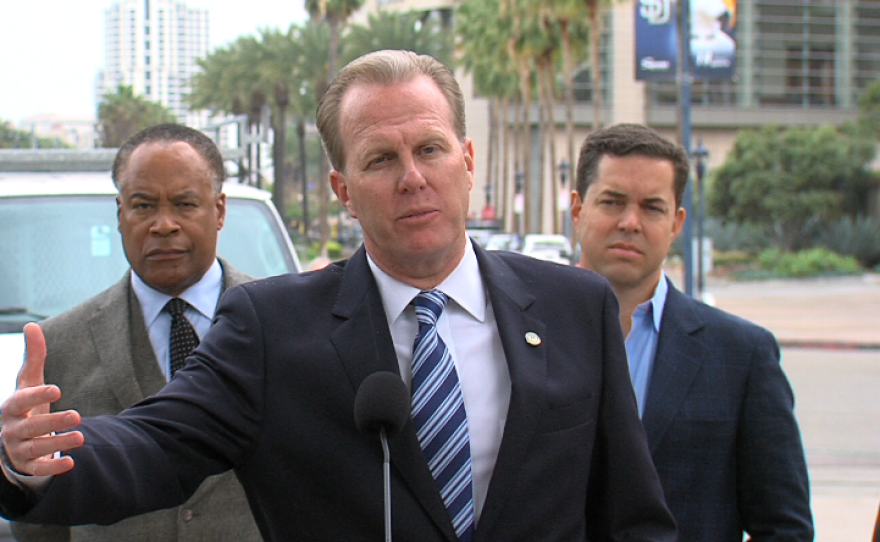
Mayor Kevin Faulconer and Chargers Chairman Dean Spanos will begin negotiations next week in hopes of coming up with a plan to build a new football stadium in San Diego, it was announced Wednesday.
The meeting next Tuesday was revealed by Tony Manolatos, a spokesman for Faulconer's advisory group, which recommended locating a 65,000-seat playing facility adjacent to aging Qualcomm Stadium and came up with a framework for a financing plan.
Mayoral spokesman Craig Gustafson confirmed the meeting would take place, but details were not released.
Now that the advisory group's work is finished, it will be up to a city and county officials, and the Chargers, to take the financial framework and hammer out a deal that all sides can agree on and take to voters.
While the plan doesn't envision a tax increase that would require a vote, the mayor and the Chargers have consistently said they want the public to validate their plans in an election.
Spanos has been saying for years that the team needs a new stadium to remain competitive and, frustrated with the lack of progress in San Diego, has jointly purchased land in the Los Angeles suburb of Carson with the rival Oakland Raiders.

Both Chargers and Raiders officials have called the Carson plan a backup in case they can't forge a deal in their home city.
A stadium is also on the drawing board in the Los Angeles suburb of Inglewood, and the Bolts are among the potential tenants there, as well.
The city and county have hired both legal and financial experts to assist their negotiating team, and the Chargers have their own slate of advisers.
The Chargers have not issued a public evaluation of the financing framework announced by the mayor's task force last week. Independent evaluators have been cautiously optimistic about the document.
The group said it found $1.4 billion in funding sources for a stadium that should cost around $1.1 billion.
Most of the money would be raised over 30 years and be used to pay back construction bonds, including rent on the Chargers, San Diego State University and San Diego Bowl Game Association; contributions from the city and county governments; and fan fees like personal seat licenses and surcharges on parking and tickets.
The group estimated that selling the land at Qualcomm Stadium for development after it's razed could raise $225 million, and the National Football League would kick in $200 million.
The group also said additional funding could be generated by selling naming rights, personalized bricks, and capital contributions from concessionaires and telecommunications firms.






